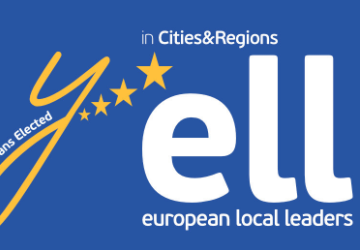Our common heritage lies at the heart of the European way of life. It is found in the villages and cities, in the natural landscapes and archeological sites. It is the literature, the art and the Monuments, the crafts we have inherited from our ancestors, the fairy tales we tell our children, the food that we enjoy and the films which we identify ourselves with. Cultural heritage defines who we are and strengthens the sense of belonging to a common European community. This is a peaceful community of more than 500 million people with a rich history and interconnected cultures.
As a representative of the local government authorities for the European cultural heritage, it is really an ambition of mine, for people to be encouraged, especially the children and young adults, to explore Europe’s rich and diverse cultural heritage and reflect on its place in our lives. By placing emphasis on this, we wish to better equip them to protect and preserve our cultural heritage in the future.
This allows us to delve into our traditions, into our memories and the history of monuments of the past, from which a lot can be learned. It is my hope that by exploring and experiencing a common cultural heritage inside and outside the school learning environment, children and young adults will realize that their different identities, whether local, regional or national can complement, enrich and strengthen one another. They will realize that it is possible to coexist in the context of a common European identity. Diversity is our wealth and power.
According to a special Eurobarometer survey on the cultural heritage nine out of ten Europeans believe that cultural heritage of Europe should be taught in schools. Schools and educators play a key role in the achievement of this objective.
Sparking a real change in the way we enjoy and defend our heritage and ensuring that it benefits the people in the long term is the key to building the best possible version of Europe.
There is a challenging agenda for Europe in the years to come which involves very serious issues. Decisions and policies required for a wide range of subjects such as economic growth and security or Europe’s role in the world, make it now more important than ever for citizens to engage in debates and contribute to the formation of policies.
The volunteering activities of the local government authorities’ representatives is a vital part that promotes participation and active citizenship. Spending a lot of their time to benefit other citizens, the new local government authorities’ representatives contribute actively to their community and to society. They increase the sense of involvement in a community and develop the concept of shared responsibility. Therefore, their volunteering is a particularly powerful tool to public engagement to society and its political life. In order to develop and implement their activities, Civil Society organisations, associations of European general interest, twinning associations and other bodies find support on voluntary work.
The EU aims to safeguard the common European cultural heritage and to support and promote Arts and creative sectors in Europe. Many cultural elements exist in a number of EU policies, such as in education, research, social policy, regional development and external relations. Every year, two cities are designated as European Capitals of Culture, an action that strengthens the local economy and promotes local artists along with the unique cultural richness of each city.



Recent Comments